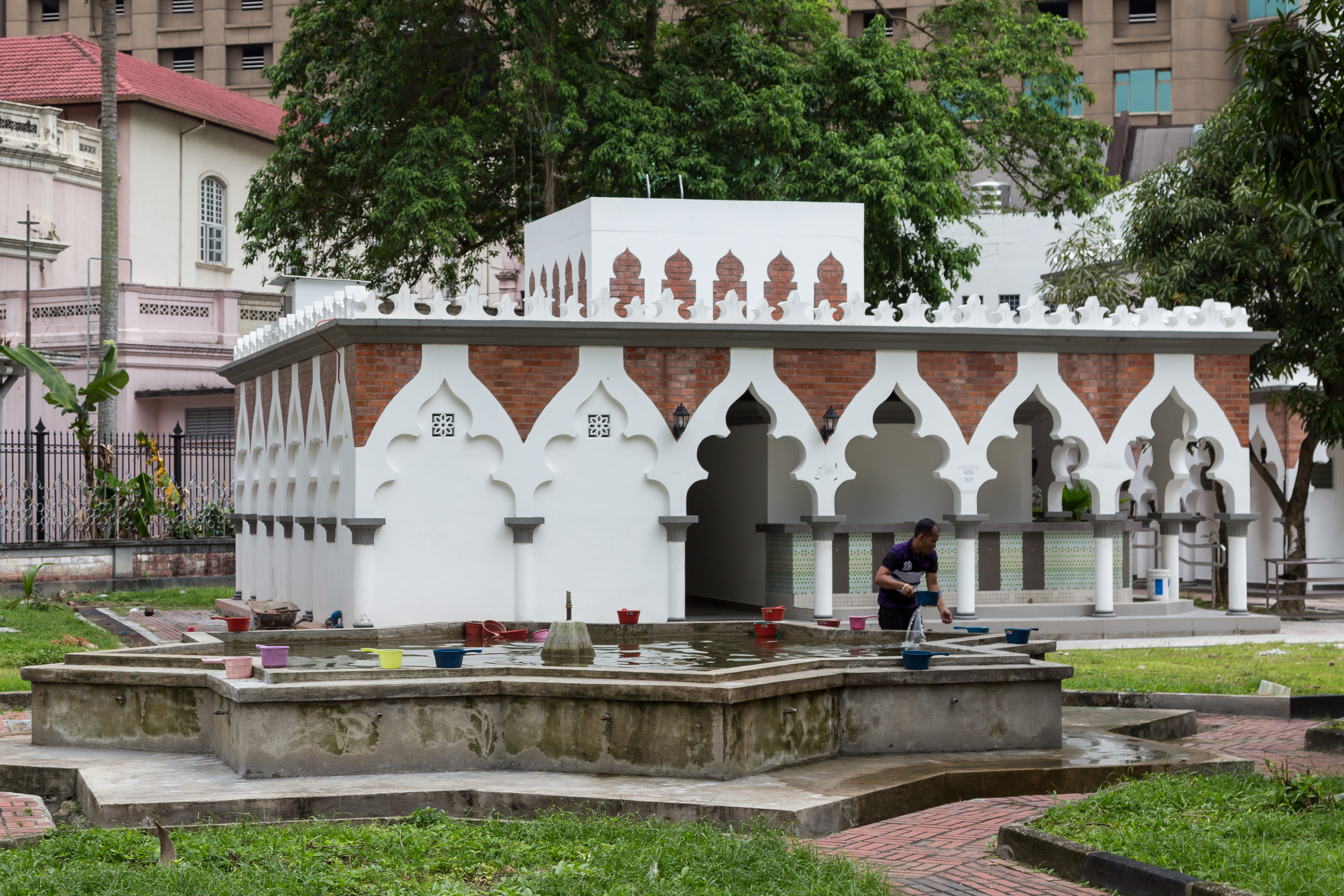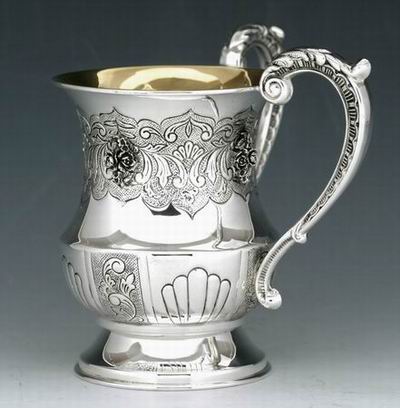|
Ma·π£buta
Ma·π£buta ( myz, ý°åý°Äý°ëý°Åý°Öý°ïý°Ä) is the ritual of immersion in water in the Mandaean religion. Overview Mandaeans revere John the Baptist and practice frequent baptism (''masbuta'') as a ritual of purification, not of initiation. They are possibly one of the earliest peoples to practice ritual baptism. Mandaeans undergo baptism on Sundays (''Habshaba''), wearing a white sacral robe ('' rasta''). Baptism for Mandaeans consists of a triple full immersion in water, a triple ''signing'' of the forehead with water and a triple drinking of water. The priest (''rabbi'') then removes a ring made of myrtle ('' klila'') worn by the baptized and places it on their forehead. This is then followed by a handshake ('' ku≈°·π≠a'' - hand of truth) with the priest. The final blessing involves the priest laying his right hand on the baptized person's head. ''Living water'' (fresh, natural, flowing water, called ''mia hayyi'') is a requirement for baptism, therefore can only take place in ... [...More Info...] [...Related Items...] OR: [Wikipedia] [Google] [Baidu] |
Mandaeism
Mandaeism ( Classical Mandaic: ý°åý°Äý°çý°Éý°Äý°âý°âý°Ä ; Arabic: ÿߟџ֟ÜÿØÿßÿ¶ŸäŸëÿ© ), sometimes also known as Nasoraeanism or Sabianism, is a Gnostic, monotheistic and ethnic religion. Its adherents, the Mandaeans, revere Adam, Abel, Seth, Enos, Noah, Shem, Aram, Jesus and especially John the Baptist. Mandaeans consider Adam, Seth, Noah, Shem and John the Baptist prophets with Adam being the founder of the religion and John being the greatest and final prophet. The Mandaeans speak an Eastern Aramaic language known as Mandaic. The name 'Mandaean' comes from the Aramaic '' manda'', meaning knowledge. Within the Middle East, but outside their community, the Mandaeans are more commonly known as the (singular: ), or as Sabians (, ). The term is derived from an Aramaic root related to baptism. The term Sabians derives from the mysterious religious group mentioned three times in the Quran alongside the Jews, the Christians and the Zoroastrians as a ' People of t ... [...More Info...] [...Related Items...] OR: [Wikipedia] [Google] [Baidu] |
Sacramental Bread
Sacramental bread, also called Communion bread, Eucharistic bread, the Lamb or simply the host ( la, hostia, lit=sacrificial victim), is the bread used in the Christian ritual of the Eucharist. Along with sacramental wine, it is one of two elements of the Eucharist. The bread may be either leavened or unleavened, depending on tradition. Catholic theology generally teaches that at the Words of Institution the bread's substance is changed into the Body of Christ (transubstantiation), whereas Eastern Christian theology generally views the epiclesis as the point at which the change occurs. Bread was also used in Jewish Temple ritual as well as in the religious rituals of Mandaeism, Mithraism, and other pagan cultures like that of ancient Egypt. Christianity Etymology of ''host'' The word ''host'' is derived from the Latin , which means 'sacrificial victim'. The term can be used to describe the bread both before and after consecration, although it is more correct to use i ... [...More Info...] [...Related Items...] OR: [Wikipedia] [Google] [Baidu] |
Pihta
In Mandaeism, the pihta ( myz, ý°êý°âý°Ñý°ïý°Ä, lit=opened; something broken apart or into pieces) is a type of sacramental bread used with rituals performed by Mandaean priests. It is a small, round, biscuit-sized flatbread that can either be salted or saltless, depending on whether the ritual use of the pihta is for living or dead people. The pihta is not to be confused with the '' fa·π≠ira'', a small, round, saltless, half-baked biscuit also used in Mandaean rituals. Description The pihta, as used in rituals for living people such as the masbuta, is a small, round, salted, biscuit-sized flatbread made by mixing flour and salt with water, followed by baking. It can only be made by Mandaean priests, and the flour is also ground by priests.Drower, Ethel Stefana. 1937. ''The Mandaeans of Iraq and Iran''. Oxford At The Clarendon Press. Unlike the '' fa·π≠ira'', which is saltless sacramental bread used for the masiqta, the pihta (as used in masbuta rituals) is salted (with salt mi ... [...More Info...] [...Related Items...] OR: [Wikipedia] [Google] [Baidu] |
Baptism
Baptism (from grc-x-koine, βάπτισμα, váptisma) is a form of ritual purification—a characteristic of many religions throughout time and geography. In Christianity, it is a Christian sacrament of initiation and adoption, almost invariably with the use of water. It may be performed by sprinkling or pouring water on the head, or by immersing in water either partially or completely, traditionally three times, once for each person of the Trinity. The synoptic gospels recount that John the Baptist baptised Jesus. Baptism is considered a sacrament in most churches, and as an ordinance in others. Baptism according to the Trinitarian formula, which is done in most mainstream Christian denominations, is seen as being a basis for Christian ecumenism, the concept of unity amongst Christians. Baptism is also called christening, although some reserve the word "christening" for the baptism of infants. In certain Christian denominations, such as the Lutheran Churches, bapt ... [...More Info...] [...Related Items...] OR: [Wikipedia] [Google] [Baidu] |
Harvard University
Harvard University is a private Ivy League research university in Cambridge, Massachusetts. Founded in 1636 as Harvard College and named for its first benefactor, the Puritan clergyman John Harvard, it is the oldest institution of higher learning in the United States and one of the most prestigious and highly ranked universities in the world. The university is composed of ten academic faculties plus Harvard Radcliffe Institute. The Faculty of Arts and Sciences offers study in a wide range of undergraduate and graduate academic disciplines, and other faculties offer only graduate degrees, including professional degrees. Harvard has three main campuses: the Cambridge campus centered on Harvard Yard; an adjoining campus immediately across Charles River in the Allston neighborhood of Boston; and the medical campus in Boston's Longwood Medical Area. Harvard's endowment is valued at $50.9 billion, making it the wealthiest academic institution in the world. Endo ... [...More Info...] [...Related Items...] OR: [Wikipedia] [Google] [Baidu] |
Birger A
Birger is a Scandinavian name from Old Norse, ''bjarga'', meaning "to help, to save, to protect". It is widely used in Norway as Birger but also as Børge. The Swedish variant of ''Birger'' would soon evolve into ''Börje'', however, the prior form would remain common, and were not be confused with its successor. The Icelandic form is ''Birgir''. Birger is primarily a masculine given name, but can also be found as a surname. Birger People with the name Birger include: Given name * Birger, King of Sweden 1280–1321), Swedish king * Birger Carlstedt (1907–1975), Finnish artist * Birger Cederin (1895–1942), Swedish fencer * Birger Dahlerus (1891–1957), Swedish businessman and amateur diplomat *Birger Ekeberg (1880–1968), Swedish jurist * Birger Hedqvist (1894–1964), Swedish lieutenant general * Birger Jarl (1210–1266), Swedish statesman *Birger Malmsten (1920–1991), Swedish actor *Birger Sandzén (1871–1954), Swedish-American painter *Birger Sjöberg (1885–1929) ... [...More Info...] [...Related Items...] OR: [Wikipedia] [Google] [Baidu] |
Wudu
Wu·∏ç≈´ æ ( ar, ÿߟџàÿ∂Ÿàÿ° ' ) is the Islamic procedure for cleansing parts of the body, a type of ritual purification, or ablution. The 4 Fardh (Mandatory) acts of ''Wudu'' consists of washing the face, arms, then wiping the head and the feet with water. Wudu is an important part of ritual purity in Islam. It is governed by ''fiqh'' (Islamic jurisprudence), which specifies rules concerning hygiene and defines the rituals that constitute it. It is typically performed before prayers ('' salah or salat''). Activities that invalidate ''wudu'' include urination, defecation, flatulence, deep sleep, light bleeding, menstruation, postpartum and sexual intercourse. ''Wudu'' is often translated as 'partial ablution', as opposed to ''ghusl'' as 'full ablution' where the whole body is washed. It also contrasts with '' tayammum'' ('dry ablution'), which uses sand or dust in place of water, principally due to water scarcity or other harmful effects on the person. Purification of ... [...More Info...] [...Related Items...] OR: [Wikipedia] [Google] [Baidu] |
Ghusl
( ar, غسل ', ) is an Arabic term to the full-body ritual purification mandatory before the performance of various rituals and prayers, for any adult Muslim after sexual intercourse/ejaculation or completion of the menstrual cycle. The washing is also recommended (i.e. it is ''mustahabb'') before Jumu'ah and Eid prayers, before entering the '' ihram'' in preparation for '' Hajj'', after having lost consciousness and after formally converting. Sunni Muslims also perform the ablution before '' Namaz-e-tawbah'' (Prayer of Repentance). ''Ghusl'' is often translated as "full ablution", as opposed to the "partial ablution" of '' wudu'' that Muslims perform after lesser impurities such as urination, defecation, flatulence, deep sleep, and light bleeding. It is a ritual bath. Types by purpose Ghusl becomes obligatory for seven causes, and the ''ghusl'' for each of these different causes has different names: *''Ghusl Janabat'' is ''ghusl'' performed after sexual intercourse/ejac ... [...More Info...] [...Related Items...] OR: [Wikipedia] [Google] [Baidu] |
Tevilah
In Judaism, ritual washing, or ablution, takes two main forms. ''Tevilah'' (טְבִילָה) is a full body immersion in a mikveh, and ''netilat yadayim'' is the washing of the hands with a cup (see Handwashing in Judaism). References to ritual washing are found in the Hebrew Bible, and are elaborated in the Mishnah and Talmud. They have been codified in various codes of Jewish law and tradition, such as Maimonides' ''Mishneh Torah'' (12th century) and Joseph Karo's ''Shulchan Aruch'' (16th century). These practices are most commonly observed within Orthodox Judaism. In Conservative Judaism, the practices are normative, with certain leniencies and exceptions. Ritual washing is not generally performed in Reform Judaism. Hebrew Bible The Hebrew Bible requires immersion of the body in water as a means of purification in several circumstances, for example: : And when the ''zav'' is cleansed of his issue, then he shall number to himself seven days for his cleansing, and wash his ... [...More Info...] [...Related Items...] OR: [Wikipedia] [Google] [Baidu] |
Rishama (ablution)
In Mandaeism, rishama (ri≈°ama) is a daily ablution ritual. Unlike the masbuta, it does not require the assistance of a priest. ''Rishama'' (signing) is performed before prayers and involves washing the face and limbs while reciting specific prayers such as the rushma. It is performed daily, before sunrise, with hair covered and after evacuation of bowels, or before religious ceremonies. Tamasha (·π≠ama≈°a) is another type of ablution performed by Mandaeans in which the entire body is fully immersed three times in water. Parallels The ablution is comparable to wudu in Islam. John D. Turner and other scholars have noted that in Sethianism, rituals reminiscent of Mandaean ablutions (i.e., the rishama and tamasha) are mentioned in Nag Hammadi texts such as the '' Trimorphic Protennoia'', since they involve triple immersion in water, signing, and other similar features. See also * Rushma *Ablution in Christianity *Ritual washing in Judaism *Wudu Wu·∏ç≈´ æ ( ar, ÿߟџàÿ∂Ÿà ... [...More Info...] [...Related Items...] OR: [Wikipedia] [Google] [Baidu] |
ṭmaša
In Mandaeism, tamasha or ·π≠ama≈°a ( myz, ý°àý°åý°Äý°îý°Ä, translit=·π≠ma≈°a) is an ablution ritual that does not require the assistance of a priest. Tamasha is performed by triple immersion in river ('' yardna'') water. It is performed by women after menstruation or childbirth, men and women after sexual activity or nocturnal emission, touching a dead corpse, or any other type of defilement (''·π≠nupa''). It is also performed after subsiding from unclean thoughts or anger at another person. Rishama is another type of ablution performed by Mandaeans, in which the face and limbs are washed (similar to the wudu in Islam). However, unlike the tamasha, it does not involve full-body immersion in water. The rishama and tamasha ablution rituals, which do not require priestly assistance, are distinct from masbuta, which needs to be performed by a priest. Whereas the tamasha is a "self-immersion" in which devotees dip themselves into the water, during the masbuta, devotees need to be imme ... [...More Info...] [...Related Items...] OR: [Wikipedia] [Google] [Baidu] |







